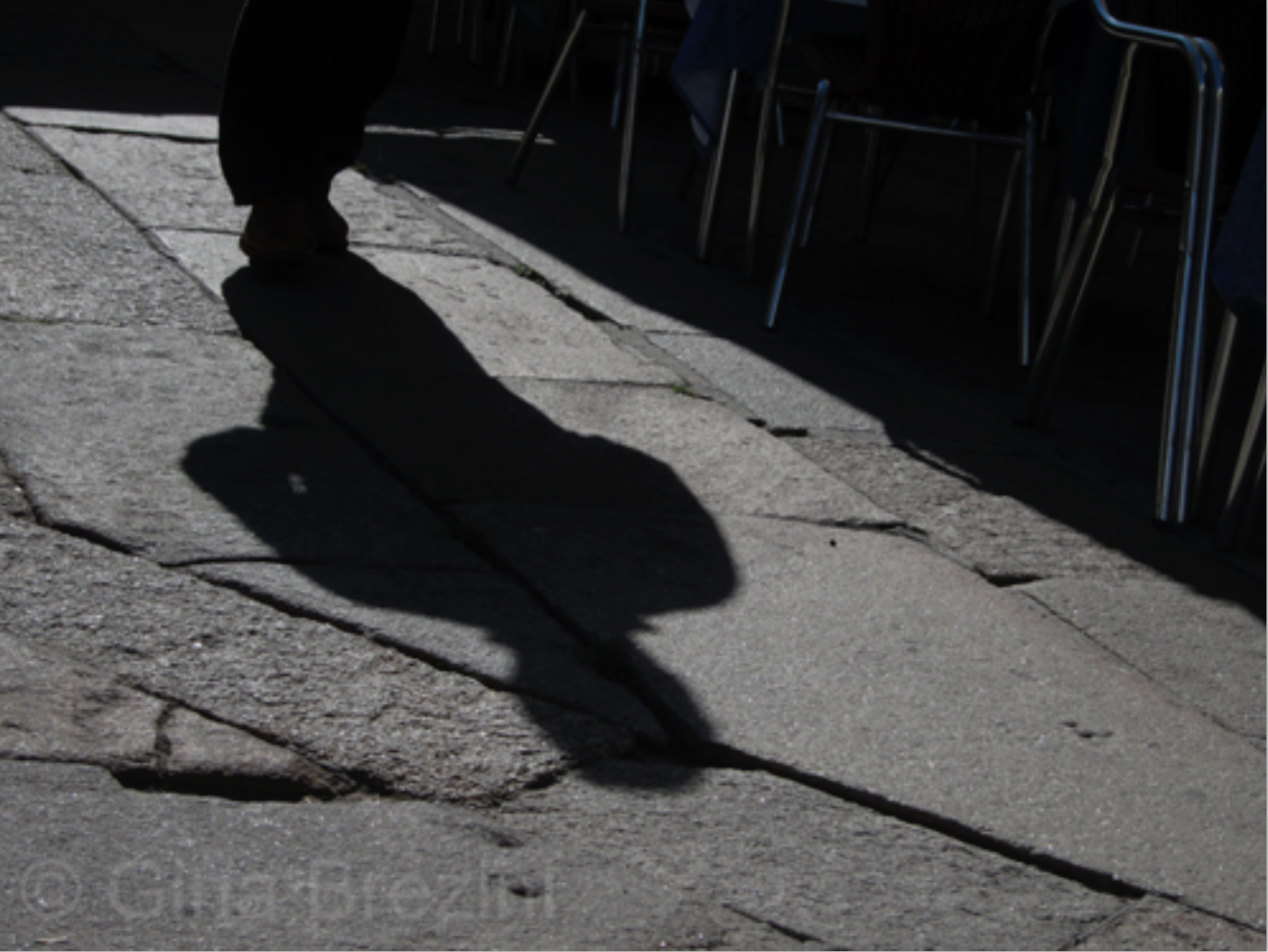Carl Jung's description of Shadow
According to Jung, the Shadow exists as part of the unconscious mind and is composed of the traits in ourselves that we dislike, deny or ignore: repressed feelings, beliefs, weaknesses, desires, instincts and perceived shortcomings.
The Shadow is the result of our attempt to adapt to cultural norms and expectations. Thus, it consists of all the things deemed unacceptable by society, as well as those that are not aligned with our own personal morals and values.
Jung argues that the Shadow plays an important role in balancing our overall psyche: "Where there is light, there must also be shadow”. Without a well-developed Shadow we can become shallow and preoccupied with the opinions of others, a walking mask.
©2013, Gina Brezini, from the series Secrets of the Shadow. 2013 exhibition in NYC
Not wanting to look at our Shadow directly, Jung argues, causes us to project it onto others. Basically, the qualities we hate in another, are actually also present in us, but we don’t want to see them.
Carl Jung believed that in order for us to truly grow, we must balance both the Persona and the Shadow.
The Shadow can appear in dreams or visions, often taking the form of a dark, wild, exotic figure.

